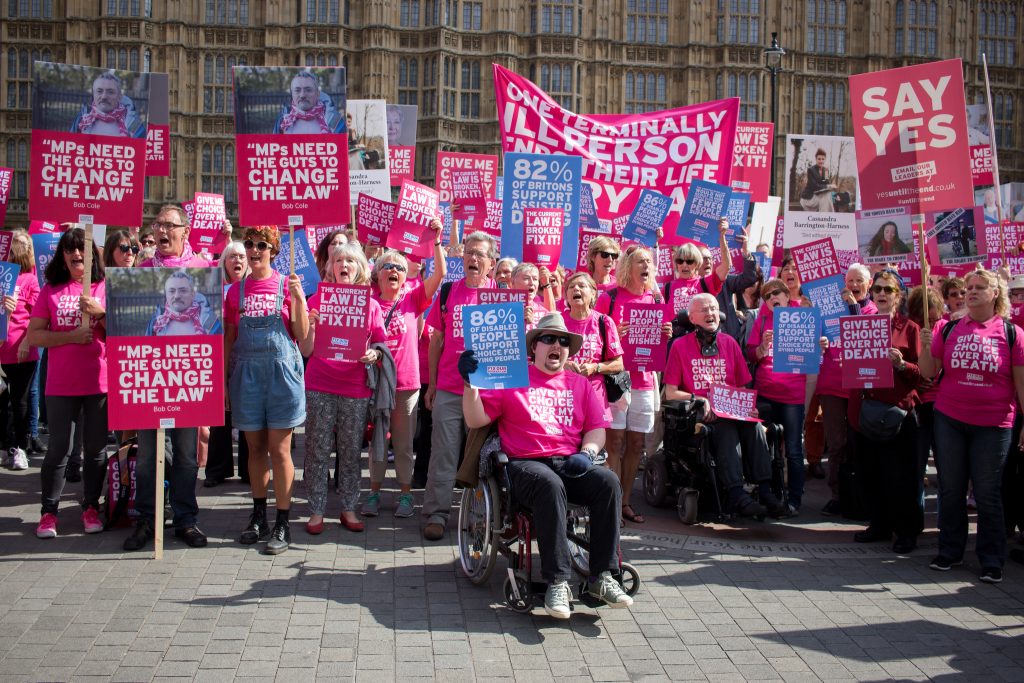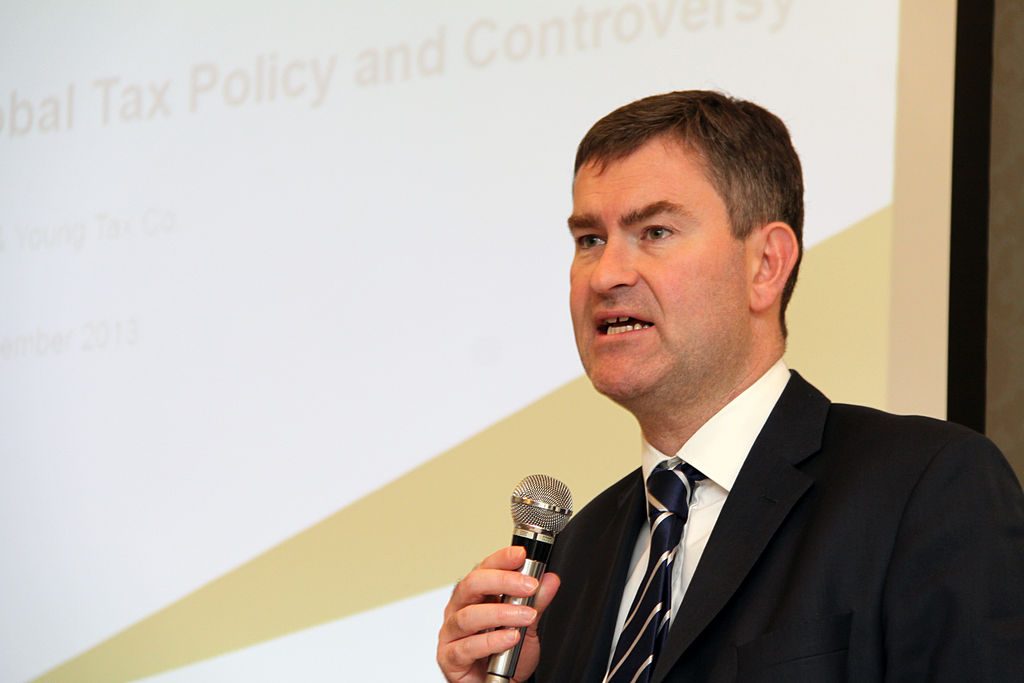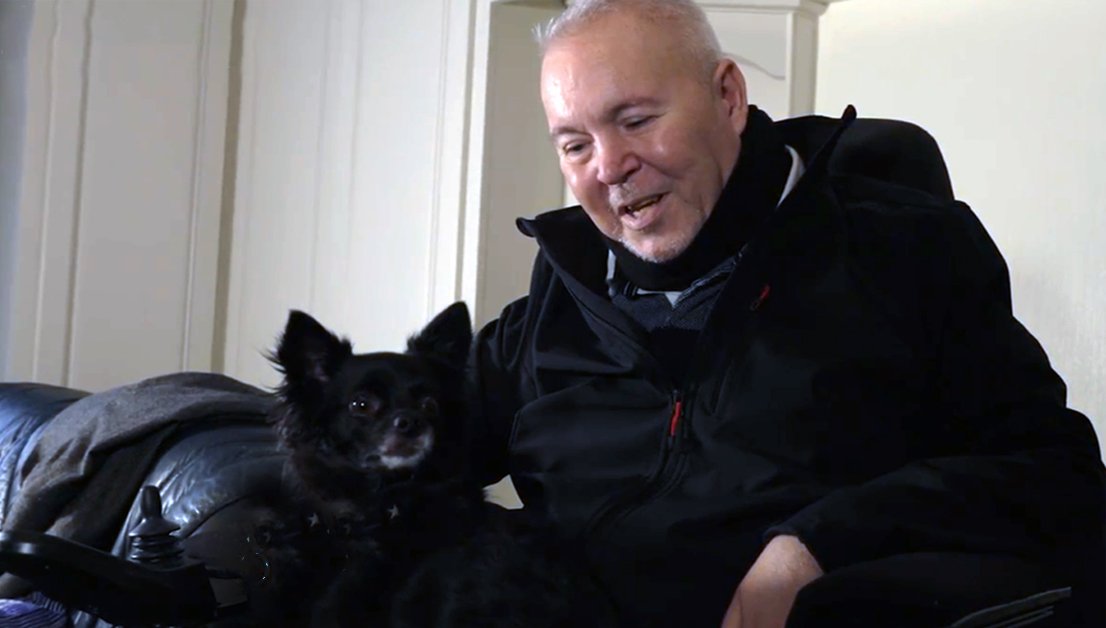A 63-year-old man is set to challenge laws around assisted dying in the UK, arguing the current rules breach his human rights.
Paul Lamb, who has been paralysed from the neck down since a car accident in 1990, says he requires around the clock care and lives in “a state of constant pain”.
“In the future, my suffering will inevitably become too much to bear,” he said. “When that happens, I want to be able to control and choose the circumstances of my death.
“As the law stands, my only option would be to die through the inhumane process of dehydration and starvation. This situation cannot be allowed to continue.”
‘Still The UK Parliament Has Done Nothing’
The challenge comes in the wake of several high profile attempts to change the law. Last year, terminally ill Noel Conway lost an appeal at the Supreme Court, where he had argued for the right to a medically assisted death.

Campaigners have urged for a change in the law. Image Credit: Dignity in Dying
In a statement at the time, the judges said they had reached their decision “not without some reluctance” but that the role of the courts was to interpret the laws – any changes must go through Parliament.
Mr Lamb has also previously challenged the law himself, alongside Jane Nicklinson, the widow of locked-in sufferer Tony Nicklinson.
In a challenge at the Supreme Court in 2014 and the European Court of Human Rights in 2015, the pair argued that the UK’s 1961 Suicide Act was incompatible with their human rights.
Under Section 2 of the Act, encouraging or assisting suicide is a crime, carrying a maximum sentence of 14 years in prison.
A Maximum Of 14 Years Imprisonment
While human rights laws specifically protect our right to life, there is much less clarity around our right to a good death.
In a letter sent to Justice Secretary David Gauke, Mr Lamb argues that the current legislation is incompatible with Article 14 of the Human Rights Convention, the right to no discrimination, as well as Article 8, which protects private and family life.

Justice Secretary David Gauke. Image Credit: Wikimedia
The letter asks the Secretary of State to “concede” the law is “incompatible” with these human rights and to “take timely steps to remedy [it]”, specifically in the case of those who are terminally ill.
If a satisfactory response is not received from the government, Paul intends to apply to the court to seek a judicial review of the current legislation. Paul argues that the law should be changed to allow assisted dying to be legal for those in his position and the terminally ill.
I have no option but to ask the Court to intervene again. I need them to help me, and many others in my position, to end this cruel and discriminatory law.
Paul Lamb, Assisted Dying Campaigner
“Five years ago, I asked our courts to give me the right to control my own death and they told me to wait,” he continued.
“Since then I have watched and waited as new evidence has emerged and progressive countries have given millions of others the choice I have asked for. And, still, the UK Parliament has done nothing.
“I have no option but to ask the Court to intervene again. I need them to help me, and many others in my position, to end this cruel and discriminatory law.”
Mr Lamb’s case is being supported by Humanists UK, and he is represented by law firm Leigh Day.
“The right to die in a manner and timing of your own choice is a fundamental human right, which the UK has neglected for too long,” added Humanists UK Chief Executive Andrew Copson.
“It should not depend upon your ability to afford travel to Switzerland, nor force families into a heart-wrenching dilemma between letting their loved ones suffer, or supporting them and risking criminal investigation.”







